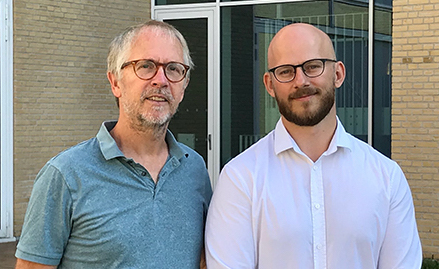Developing biological nano-implants to block epileptic seizures
Epilepsy is one of the most common neurological diseases and seizures can be debilitating. Unfortunately, treatments to prevent these seizures are lacking. Jørgen Kjems from iNANO and the Department of Molecular Biology at Aarhus University and the AU spinout company, OMIICS, are partners in a new consortium, PRIME, that will seek to develop biological nano-implants - based on naturally occurring signaling pathways - that can help patients with epilepsy.

There are urgent and unmet needs for the treatment of neurological diseases. Epilepsy is a serious, chronic brain disease characterized by recurrent seizures. Closed-loop, implanted devices offer ways to reduce seizures in drug-resistant patients but their efficacy is poor and they interrupt seizures only after they begin.
A new FET-OPEN consortium, PRIME, will address this issue by developing an innovative diagnostic-therapeutic treatment for people with epilepsy and other neurological diseases, by implanting engineered biological cells in the brain that will act as bio-computers to treat and suppress impending seizures. This bio-computing system is based on the recent finding that a specific group of tRNA molecules are cleaved and accumulate in the brain prior to the onset of epileptic seizures. The PRIME consortium will create biological nano-implants of engineered cells that sense the presence of tRNA fragments and in turn produce a naturally occurring hormone that prevents or dampens seizures.
About the PRIME consortium
The PRIME consortium is funded by a grant of 4.4 million Euro under the EU's Horizon2020 program and will run over four years. PRIME is coordinated by scientists at the Waterford institute of Technology in Ireland and includes partners in five countries ranging from clinicians to molecular biologists, information scientists and a bioinformatics company.
The role of Jørgen Kjems’ lab will be to create cells that can sense and respond to a drop in the level of tRNA fragments, while Omiics will screen for associated changes in RNA expression in the engineered cells and in the blood of the patients. PRIME’s results will provide a transformational diagnostic-therapeutic treatment for epilepsy and other neurological diseases that feature disrupted neuronal network function.
For further information please:
Professor Jørgen Kjems
Interdiciplinary Nanoscience Center (iNANO) and Department of Molecular Biology and Genetics
Aarhus University
Email: jk@mbg.au.dk
